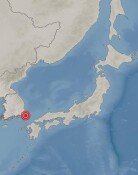Hill: North Korea Must Declare HEU Programs
Hill: North Korea Must Declare HEU Programs
Posted March. 28, 2007 07:34,
Purport of Hills Luncheon Remarks-
Many claim that North Korea will not give up its nuclear program. I dont understand why they think this. I believe that upcoming events will unfold logically and that the North can be denuclearized. Our clear goal is to have Pyongyang scrap all of its nuclear weapons and to denuclearize the Korean peninsula. We will keep proceeding. I believe that the BDA problem will be solved in the next couple of days, and then, the IAEA inspectors will embark on their jobs.
North Korea will declare its nuclear programs during the second phase of the process. The declaration must include an explanation regarding the purchase of considerable equipment for its highly enriched uranium program. They will also have to make clear and detailed reports on the nuclear substances already in their possession and confirm the amount of their military grade plutonium, of which experts speculations vary from 40kg to 60kg. Complete disabling of its nuclear facilities would be the next step. There are many ways to implement this, but in essence, it means to make the facilities very costly and difficult to reactivate. Currently in Beijing, we are watching a situation similar to a video game. Things get trickier as we pass through stages.
Debate of the Stars-
In the question and answer session after his speech, Hill held a heated debate with other participants in the conference, including major figures such as Robert Gallucci, dean of Georgetown Universitys Walsh School of Foreign Service who played a significant role in negotiations with the North to produce the 1994 Agreed Framework as the U.S. assistant secretary of state for political-military affairs; Don Oberdorfer, a Johns Hopkins University professor who served as a journalist specializing in Korean-U.S. affairs; and Jack Pritchard, president of the Korea Economic Institute.
Dean Gallucci asked Hill how fundamental a change in Pyongyang the current measures could bring. The assistant secretary of state made it clear that Washingtons goal is complete denuclearization saying, The U.S. will not form any kind of ties with a nuclear-armed North Korea. He stipulated that the case of India (which signed a nuclear pact despite possessing nuclear programs) will not apply to North Korea. Hill also held a firm stance against the human rights situation of the Stalinist regime.
If the relationship between the U.S. and North Korea is to improve, Pyongyang will have to meet international standards. They need to improve their human rights conditions while having sincere talks over this matter. This is a requirement not only to have better relations with Washington, but also to be integrated into the international society. Isnt it true that it is necessary to improve ties with the EU?
Professor Oberdorfer said, I heard that North Korean foreign minister Kim Kye Kwan mentioned the idea of taking a shortcut, asking if Washington has intentions to be engaged in a high-level talksimplying one between foreign affairs heads or summitswith North Korea.
Pyongyang might be interested in the shortcut, but we have wasted two weeks because of the BDA problem and our delegation has been waiting all this time. We dont feel any urge to have such talks, answered the U.S. chief delegate to the six-party talks.
He added, Of course a meeting between top officials could help, considering that solving Pyongyangs nuclear problem could be a prolonged process. Having top figures involved, we can talk not only about nuclear issues but also general issues concerning the Korean peninsula, and have increased momentum to take care of them.
Asked by the press whether he could understand the conducts of the North Korean delegation in Beijing last week, he didnt bother to hide his disappointment. Of course what they did was wrong. But we tried to help them and made some difficult decisions on our part. Hill continued, We dont think that Pyongyang is reneging on its pledge to denuclearize. If they deny this agreement, we will take a different path, and the U.S. wont be alone then.
srkim@donga.com sechepa@donga.com







